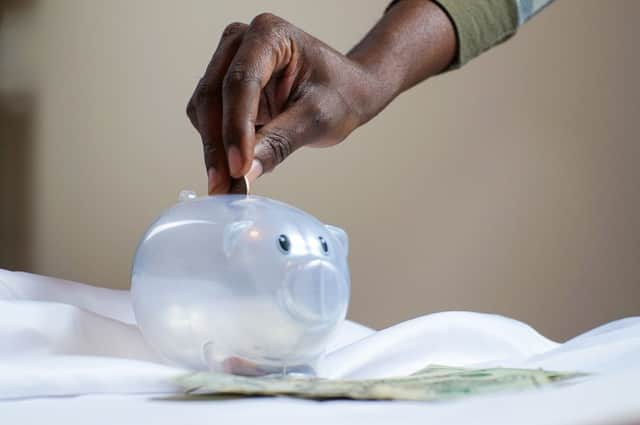Adults with a ‘very laid-back attitude’ to money could cost them £1,631.16 per year
This article contains affiliate links. We may earn a small commission on items purchased through this article, but that does not affect our editorial judgement.


Brits who are very savvy with their cash put away £206.09 per month – or £2,473.08 a year, a poll of 2,000 adults found.
But those who claim they are very laid back only put away £70.16 per month – or £841.92 a year.
Advertisement
Hide AdAdvertisement
Hide AdWhen it comes to spending money on ‘nice to haves’, savvy people drop £77.52 per month compared to laidback people who fork out £134.28 a month.
This equates to £930.24 and £1,611.36 a year respectively – meaning savvy people spend £681.12 a year less than on non-essentials compared to those with a more relaxed personality.
Professor Adrian Furnham, an organisational and applied psychologist, outlined four broad character traits by which many people fall into when it comes to finances.
Among the personality types are the 'Savvy Saver', 'Power Player', 'Hopeless Romantic' and the 'Splash the Casher'.
Advertisement
Hide AdAdvertisement
Hide AdFollowing the findings, a personality quiz has been created to determine which category you fall into.
Quiz reveals financial personality types
Professor Furnham said: “The Splash the Casher is someone who lives for the moment and could even be labelled as irresponsible with their money.
“For them, money buys freedom.
“On the other end of the spectrum, Savvy Savers try to avoid compulsive spending and are proud of their nest egg. To friends, they might boast about their unrivalled bargain-hunting abilities.”
Abigail Yearley, a spokesperson for TopCashback, which commissioned the research, said: “Everyone has a personality, and everyone has different attitudes and habits when it comes to finances.
Advertisement
Hide AdAdvertisement
Hide Ad“There’s no ideal financial personality type, but our research does show that savviness can pay off in the long run.
“We understand these are difficult times, and many of us are looking at ways we can make our money stretch further.
“No matter what your financial personality type is, we would encourage anyone to seek help if you need it.
"When it comes to being savvy, implementing easy habits, like using cashback sites, will help you to save as you spend. Little changes such as this, can go a long way."
Raising financial awareness
Advertisement
Hide AdAdvertisement
Hide AdThe research found 49 per cent of Brits claim to be risk-averse when it comes to investing.
Even if they were given a pay rise or acquired additional regular income, 42 per cent would save the extra money and live the same way as before, 17 per cent would invest it, and 16 per cent would spend it on nice things they were previously unable to afford.
There were similar findings when it comes to spending money, with 68 per cent considering themselves cautious.
However, the research revealed adults enjoying forking out on food, with takeaways (33 per cent) and lunch or dinner out (32 per cent) being the most popular ‘nice to haves’.
Advertisement
Hide AdAdvertisement
Hide AdThe awareness about finances is also highlighted by the acute understanding of just how much money respondents had in their current account.
A quarter knew they how much was in their current account to the exact penny – although there are varying differences between the different financial personality types.
For example, 37 per cent of Savvy Savers know how much is in their account to the last penny – while only 12 per cent of the Hopeless Romantics – who love to spend money on others - could say the same.
The study, carried out via OnePoll, found financial security (43 per cent) and a freedom from life’s demands (31 per cent) were deemed the main benefits which ample money can provide.
Advertisement
Hide AdAdvertisement
Hide AdIn fact, among those who classed themselves as Savvy Savers, financial security rose to 52 per cent – while for the Hopeless Romantics, it dipped to just 32 per cent.
Abigail Yearley added: “The findings also show more than a quarter of Brits (27 per cent) aren’t comfortable talking about their finances.
“Whilst money can be a difficult subject, it’s important to not suffer in silence.”